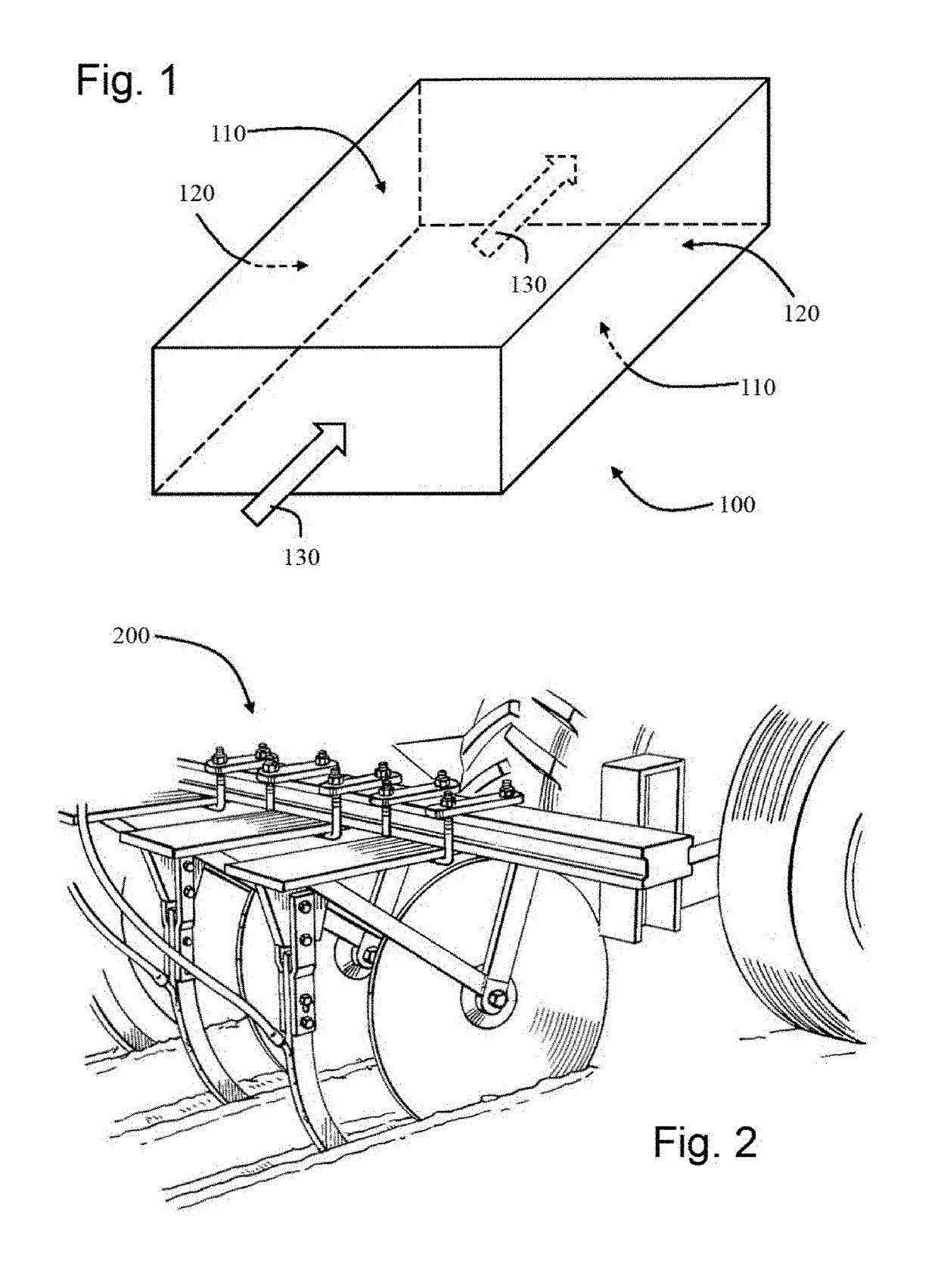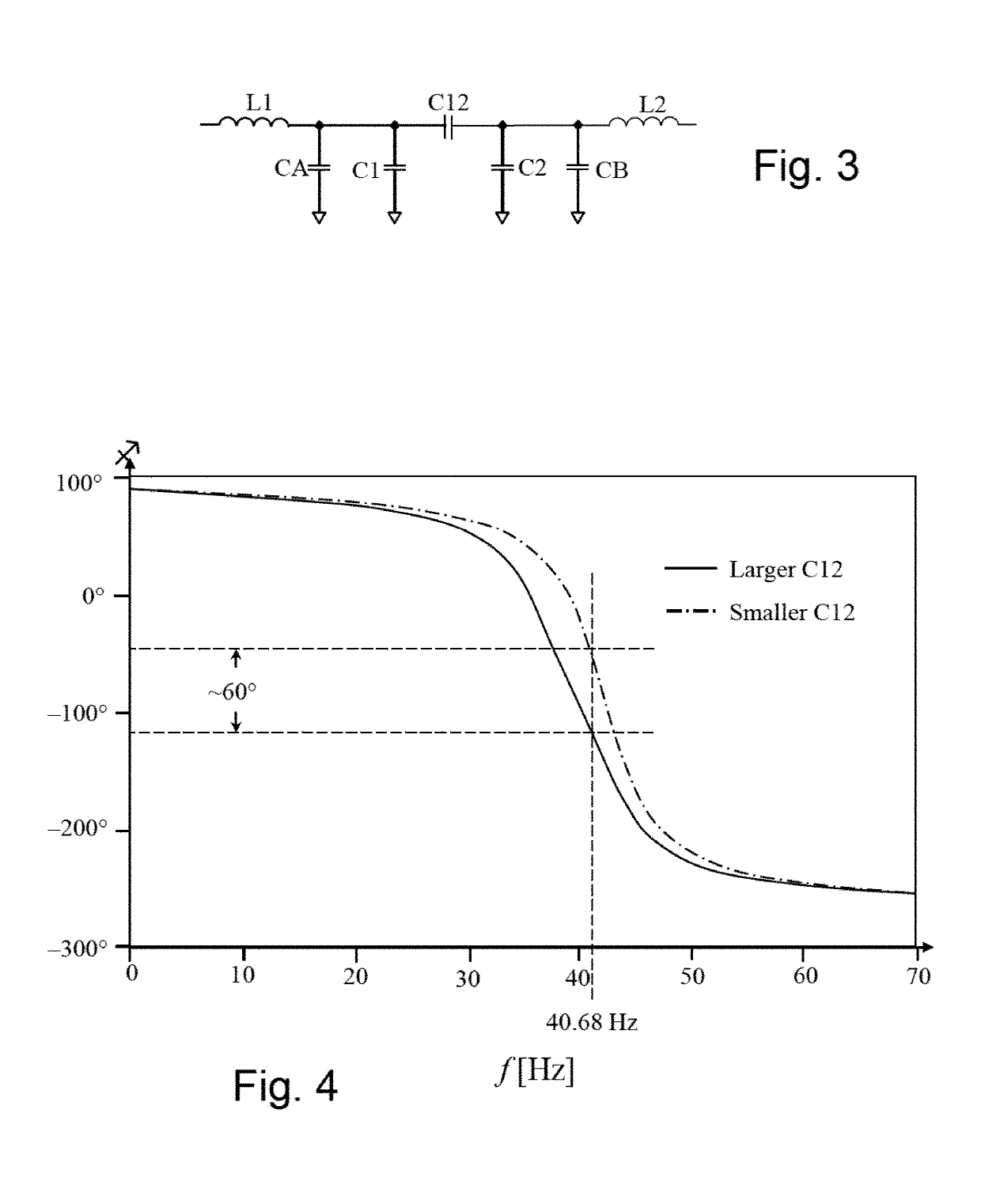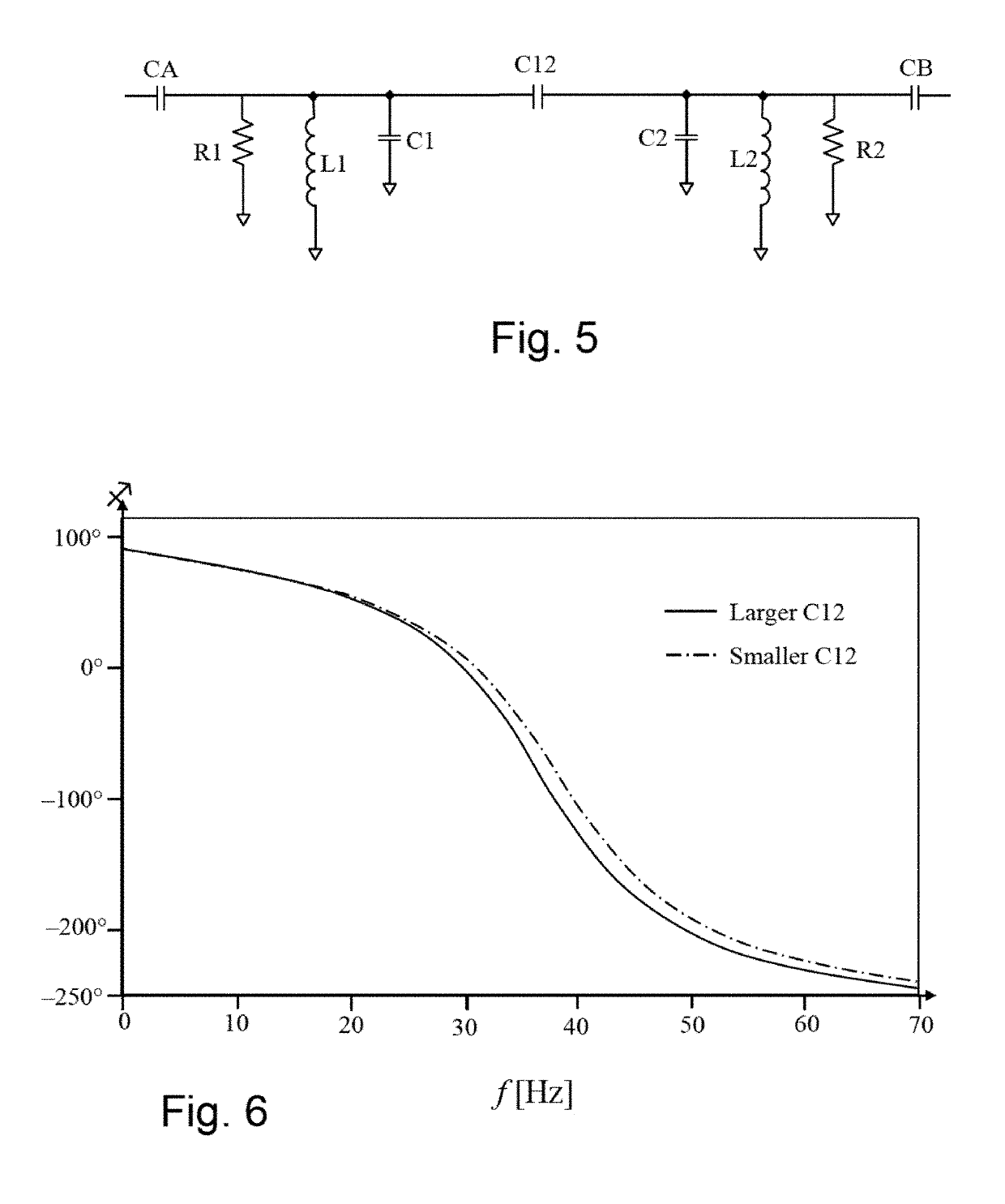Flow sensor based on electrical capacity
a technology of electrical capacity and flow sensor, applied in the direction of instruments, liquid/fluent solid measurement, resistance/reactance/impedence, etc., can solve the problems of varying the rate of application, the inability of liquid spray agricultural equipment to provide individual row sensing, and the economic disadvantage of tillage, planting and harvesting, so as to minimize the variation of material density over the time taken to traverse.
- Summary
- Abstract
- Description
- Claims
- Application Information
AI Technical Summary
Benefits of technology
Problems solved by technology
Method used
Image
Examples
Embodiment Construction
[0085]A sensor system volume 100 through which material may pass or in which material or matter is contained is shown in FIG. 1. Two sides 110 comprise electrically conducting plates. Two more sides 120 comprise electrical insulators. The capacity between the electrically conducting plates may be measured using methods commonly understood by those of ordinary skill in the art and explained in undergraduate electrical engineering texts. Circuits for this purpose are shown in FIGS. 3 and 5 and their use described below. The arrows 130 indicate a flow direction, but the direction is immaterial. In fact, there may be no flow at all. An application of the present invention is the sensing of mass flow rate of anhydrous ammonia using an applicator 200, an example of which is shown in FIG. 2. Such an applicator is made to apply anhydrous ammonia to multiple rows, simultaneously.
[0086]An example equivalent circuit of the sensor of the present invention is shown in FIG. 3. An input alternatin...
PUM
| Property | Measurement | Unit |
|---|---|---|
| electrically conductive | aaaaa | aaaaa |
| distance | aaaaa | aaaaa |
| time-delay | aaaaa | aaaaa |
Abstract
Description
Claims
Application Information
 Login to View More
Login to View More - R&D
- Intellectual Property
- Life Sciences
- Materials
- Tech Scout
- Unparalleled Data Quality
- Higher Quality Content
- 60% Fewer Hallucinations
Browse by: Latest US Patents, China's latest patents, Technical Efficacy Thesaurus, Application Domain, Technology Topic, Popular Technical Reports.
© 2025 PatSnap. All rights reserved.Legal|Privacy policy|Modern Slavery Act Transparency Statement|Sitemap|About US| Contact US: help@patsnap.com



